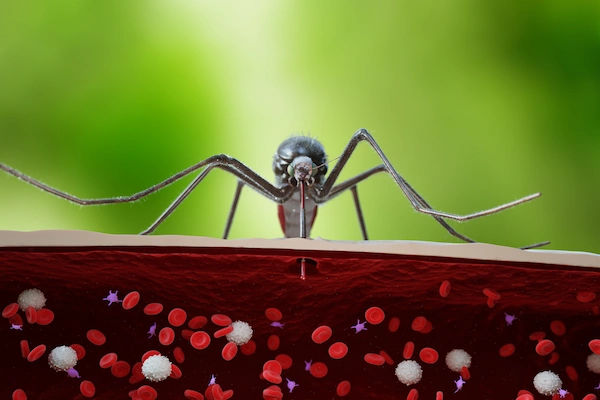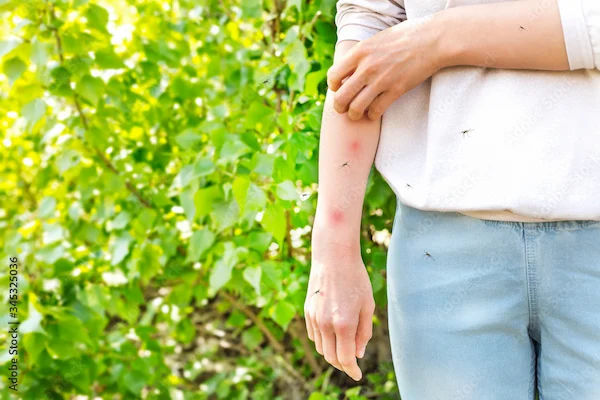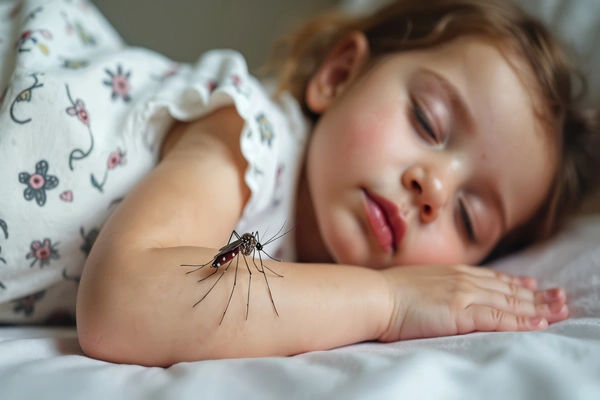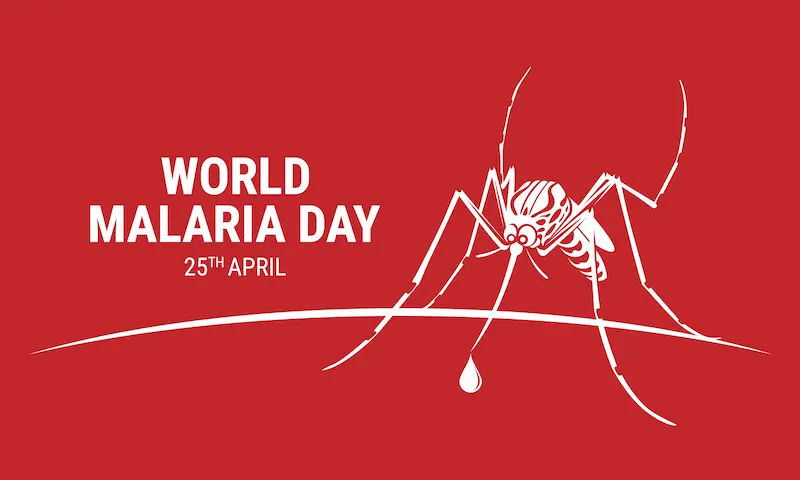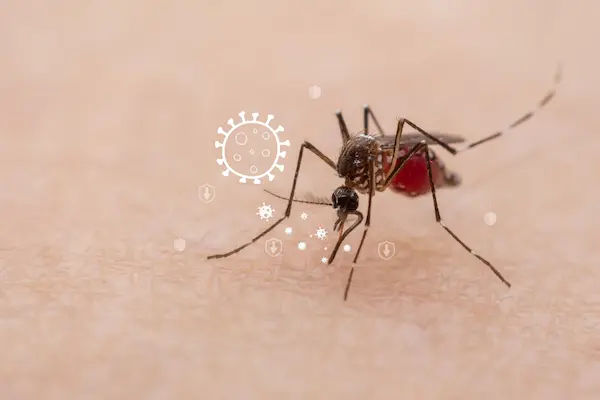Malaria Care Plan Guide
Explore a complete malaria care plan with tips for treatment, home recovery, prevention, and long-term health management.


Introduction
Malaria is more than just a fever; it's a serious mosquito-borne illness caused by a parasite that requires a clear and proactive strategy for recovery. Navigating a malaria diagnosis can be worrying, but with the right care plan, you can effectively manage symptoms, support your body’s healing process, and prevent complications. This comprehensive guide is designed to empower you and your family with the knowledge needed to execute a successful malaria recovery plan, blending crucial medical treatment with supportive home care. We’ll walk you through everything from recognising early symptoms and getting a diagnosis to practical tips for comfort and knowing precisely when to seek further help. Think of this as your roadmap back to health.
Understanding Malaria: Causes and How It Spreads
Malaria is not contagious from person to person like a cold or flu. It is caused by Plasmodium parasites, which are transmitted to humans through the bites of infected female Anopheles mosquitoes. When an infected mosquito bites, it injects the parasites into your bloodstream. These parasites then travel to your liver, where they mature and multiply. After several days, they re-enter the bloodstream and infect red blood cells, causing them to burst. This cycle of invasion, multiplication, and rupture is what leads to the classic cyclic symptoms of chills, fever, and sweating. Understanding this transmission is key to prevention, as interrupting the mosquito-human-mosquito cycle is the ultimate goal of public health strategies. It's also why you cannot get malaria from casual contact with an infected person.
Consult a General Physician for the best advice
Recognising the Signs: Symptoms of Malaria
Symptoms typically appear within 10-15 days after the infective mosquito bite. However, the presentation can vary from mild to severe.
Uncomplicated Malaria Symptoms
This form of the disease presents with recognizable symptoms that, while debilitating, are not immediately life-threatening. They often occur in cyclical episodes lasting 6-10 hours, comprising:
A cold stage: feeling intense chills and shivering.
- A hot stage: high fever, headaches, and vomiting.
- A sweating stage: profuse sweating followed by fatigue and a return to normal temperature.
- Other common signs include body aches, muscle pains, nausea, and general malaise. These symptoms of uncomplicated malaria can often be mistaken for a severe flu, which is why a diagnostic test is critical.
Severe Malaria: A Medical Emergency
Severe malaria occurs when infections are complicated by serious organ failures or abnormalities in the patient's blood or metabolism. It is a medical emergency that requires immediate inpatient care. Signs of severe malaria include:
- Cerebral malaria (abnormal behaviour, impaired consciousness, seizures, coma)
- Severe anemia due to hemolysis (destruction of red blood cells)
- Haemoglobinuria (dark or cola-coloured urine from red blood cell damage)
- Acute respiratory distress syndrome (ARDS)
- Blood coagulation abnormalities
- Cardiovascular collapse and shock
The First Step: Getting a Proper Diagnosis
Self-diagnosing and treating malaria is dangerous. A proper diagnosis confirms the presence of the parasite and identifies the specific species, which dictates the correct treatment.
Blood Tests: The Gold Standard for Detection
Microscopic examination of blood smears remains the standard method. A lab technician stains a drop of your blood on a slide and examines it under a microscope to visually identify the Plasmodium parasites. This test can also determine the parasite density (how many parasites are in your blood), which helps assess the severity of the infection. If your initial symptoms suggest malaria, a doctor will typically order this test. For convenience, services like Apollo24|7 offer home collection for blood samples, ensuring you can get tested without traveling while unwell.
Rapid Diagnostic Tests (RDTs)
RDTs are immuno-chromatographic tests that detect specific malaria antigens in a person's blood. They provide a result quickly (in 2-15 minutes) and are useful in remote areas where microscopy is not available. However, they are generally less quantitative than smear tests and may be used for initial screening.
Get Your Health Assessed
The Core of Your Care Plan: Medical Treatment for Malaria
The foundation of any malaria treatment plan is prescription antimalarial medication. The choice of drug depends on the Plasmodium species, the severity of the disease, and the drug resistance patterns in the geographic area where the infection was acquired.
Antimalarial Medications: Types and Regimens
For uncomplicated malaria caused by P. falciparum (the most deadly species), Artemisinin-based Combination Therapies (ACTs) are the first-line treatment worldwide. ACTs combine an artemisinin derivative (which rapidly reduces the number of parasites) with a partner drug (which eliminates the remaining parasites). Common examples include Artemether-Lumefantrine and Artesunate-Amodiaquine. For other species like P. vivax or P. ovale, a drug like Primaquine is often added to eliminate dormant liver stages and prevent relapses.
The Importance of Completing Your Full Course of Medication
It is absolutely critical to take the exact prescribed dose for the full duration, even if you start feeling better after a few days. Stopping medication early can lead to a relapse of the infection and contribute to the development of drug-resistant parasites, a major global health concern. Set reminders if needed to ensure you complete the entire malaria treatment schedule.
Your Home Care Plan: Managing Symptoms and Promoting Recovery
While medication fights the parasite, supportive home care for malaria manages symptoms and makes the recovery process more comfortable.
Managing Fever and Discomfort
High fever can be managed with antipyretics (fever-reducers) like acetaminophen (paracetamol). Always consult your doctor before taking any over-the-counter medication to ensure it doesn't interfere with your prescribed treatment. A lukewarm sponge bath can also help reduce fever. Wear light, comfortable clothing and use light bedding.
Staying Hydrated: Fluid Intake is Crucial
Fever and sweating lead to significant fluid loss. Dehydration can worsen fatigue and complicate recovery. Drink plenty of fluids like water, oral rehydration solutions (ORS), clear broths, and coconut water. Aim for clear or pale yellow urine as a sign of good hydration.
Nutrition: Eating Right to Rebuild Strength
Focus on a light, easy-to-digest diet for malaria recovery. The traditional BRAT diet (Bananas, Rice, Applesauce, Toast) can help if nausea is present. Incorporate soups, boiled vegetables, and lean proteins like chicken or fish as your appetite returns. Small, frequent meals are often better tolerated than three large ones.
The Role of Rest in Recovery
Your body needs immense energy to fight the infection and repair damaged red blood cells. Prioritize complete rest. Avoid physical exertion and get plenty of sleep. Do not return to work or school until your doctor confirms you are well enough.
Monitoring Your Progress: What to Watch For
Keep a simple log to track your temperature, fluid intake, and general symptom progression. Note if fever cycles are becoming less severe and farther apart, which is a positive sign. Also, monitor for any new symptoms.
When to Seek Immediate Medical Attention
While home care is important, certain red flags necessitate immediate medical intervention. Seek emergency care if you or your loved one experiences:
- A fever that persists after starting treatment.
- Extreme fatigue or confusion.
- Difficulty breathing or chest pain.
- seizures or loss of consciousness.
- Blood in urine or dark-coloured urine.
- Persistent vomiting (inability to keep fluids or medication down).
If any of these signs of severe malaria appear, do not wait. Consult a doctor online immediately with Apollo24|7 for urgent advice or proceed to the nearest emergency room.
Preventing Reinfection: Long-Term Strategies
Recovery doesn't end with feeling better. Preventing another infection is a crucial part of your long-term plan.
Mosquito Bite Prevention Tips
- Use insect repellent containing DEET, picaridin, or oil of lemon eucalyptus on exposed skin.
- Sleep under a long-lasting insecticidal net (LLIN), especially if you live in or are travelling to a high-risk area.
- Wear long-sleeved shirts and long pants, particularly during dusk and dawn when mosquitoes are most active.
- Use screens on windows and doors and use mosquito coils or vaporisers indoors.
Antimalarial Prophylaxis for Travel
If you are traveling to a malaria-endemic region, consult a doctor well in advance about taking antimalarial prophylaxis (preventive medication). You will need to start taking the drugs before your trip, continue throughout your stay, and for a period after returning.
Conclusion
A successful battle against malaria is fought on two fronts: with precise medical treatment to eliminate the parasite and diligent supportive care to manage symptoms and strengthen the body. This care plan for malaria provides a framework to navigate your recovery confidently, from the first signs of fever through to full restoration of health. Remember, the most critical steps are seeking a professional diagnosis immediately and adhering strictly to your prescribed medication regimen. By combining these medical interventions with smart home care strategies like hydration, nutrition, and rest, you give yourself the best possible chance for a smooth and complete recovery. Stay vigilant, listen to your body, and never hesitate to seek professional medical advice when in doubt. Your health is worth it.
Consult a General Physician for the best advice
Consult a General Physician for the best advice

Dr. Ajay K Sinha
General Physician/ Internal Medicine Specialist
30 Years • MD, Internal Medicine
Delhi
Apollo Hospitals Indraprastha, Delhi
(225+ Patients)

Dr. Mijanur Rahaman Mondal
General Practitioner
3 Years • MBBS
Kolkata
Dr Utsa Basu Clinic, Kolkata
(25+ Patients)

Dr. Sumanjita Bora
Cardiologist
9 Years • MBBS, PGDCC
Bengaluru
Apollo Clinic, Sarjapur Road, Bengaluru
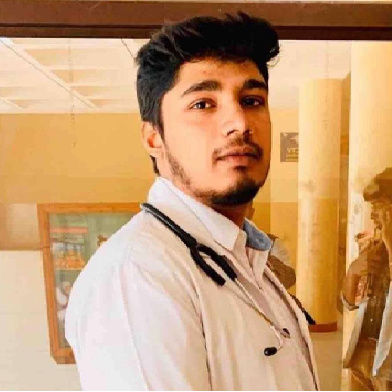
Dr. Zulkarnain
General Physician/ Internal Medicine Specialist
8 Years • MBBS, Fellowship in Family Medicine
Bengaluru
Apollo Clinic, Indiranagar, Bengaluru
(25+ Patients)

Dr. Rohit Basu
General Practitioner
8 Years • MBBS, DNB (General surgery)
East Midnapore
VIVEKANANDA SEBA SADAN, East Midnapore
Consult a General Physician for the best advice

Dr. Ajay K Sinha
General Physician/ Internal Medicine Specialist
30 Years • MD, Internal Medicine
Delhi
Apollo Hospitals Indraprastha, Delhi
(225+ Patients)

Dr. Mijanur Rahaman Mondal
General Practitioner
3 Years • MBBS
Kolkata
Dr Utsa Basu Clinic, Kolkata
(25+ Patients)

Dr. Sumanjita Bora
Cardiologist
9 Years • MBBS, PGDCC
Bengaluru
Apollo Clinic, Sarjapur Road, Bengaluru

Dr. Zulkarnain
General Physician/ Internal Medicine Specialist
8 Years • MBBS, Fellowship in Family Medicine
Bengaluru
Apollo Clinic, Indiranagar, Bengaluru
(25+ Patients)

Dr. Rohit Basu
General Practitioner
8 Years • MBBS, DNB (General surgery)
East Midnapore
VIVEKANANDA SEBA SADAN, East Midnapore
More articles from Malaria
Frequently Asked Questions
Can I treat malaria at home alone?
While supportive care like hydration and rest is done at home, malaria requires prescription antimalarial medication. You must be diagnosed and treated under a doctor's supervision. Home care complements but does not replace medical treatment.
What is the best thing to eat when recovering from malaria?
Focus on a light, nutritious, and easy-to-digest diet for a malaria patient. Start with fluids (soups, ORS, coconut water), then move to soft foods like bananas, rice, applesauce, toast (BRAT diet), boiled vegetables, and lean proteins like khichdi or grilled chicken to rebuild strength.
How long does it take to fully recover from malaria?
With proper treatment, fever and other symptoms usually improve within 24-48 hours. The parasite is typically cleared within 2-3 days. However, full recovery of your energy and strength can take weeks, depending on the severity of the infection. Adequate rest during this period is vital.
Can malaria come back after treatment?
Yes, but in specific cases. The species P. vivax and P. ovale can form dormant stages in the liver that can reactivate weeks or even months later, causing a relapse. This is why treatment for these species includes a drug like Primaquine to target the liver stages. P. falciparum does not relapse but can recur if the initial treatment was incomplete or ineffective.
Is there a vaccine for malaria?
Yes, the RTS,S/AS01 (Mosquirix) vaccine is recommended by WHO for children in moderate-to-high malaria transmission areas. It significantly reduces severe malaria. However, it is not yet widely available for travelers or adults and is used alongside other prevention measures like nets and repellents.

